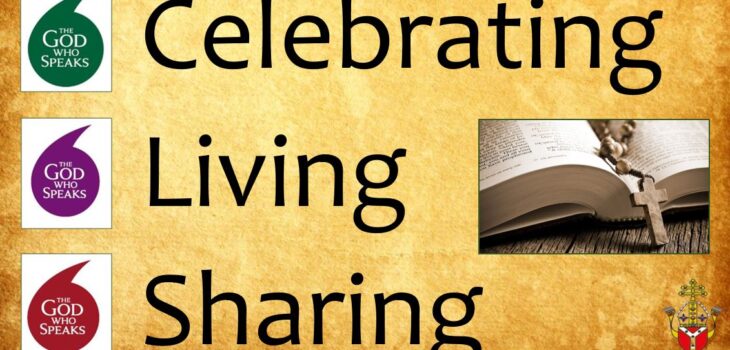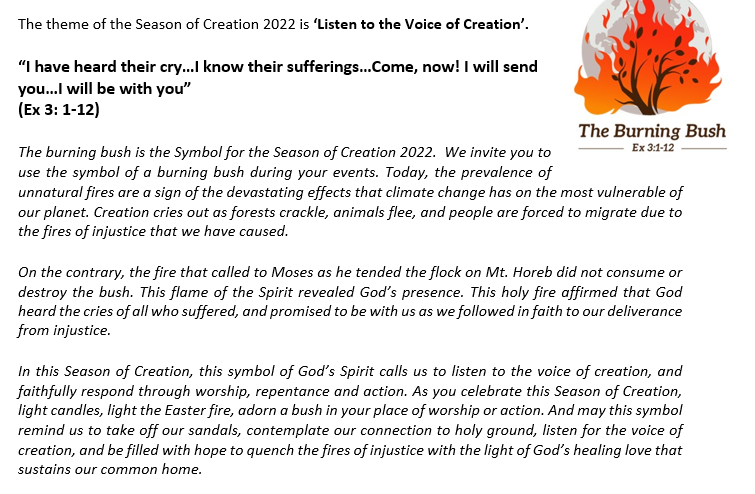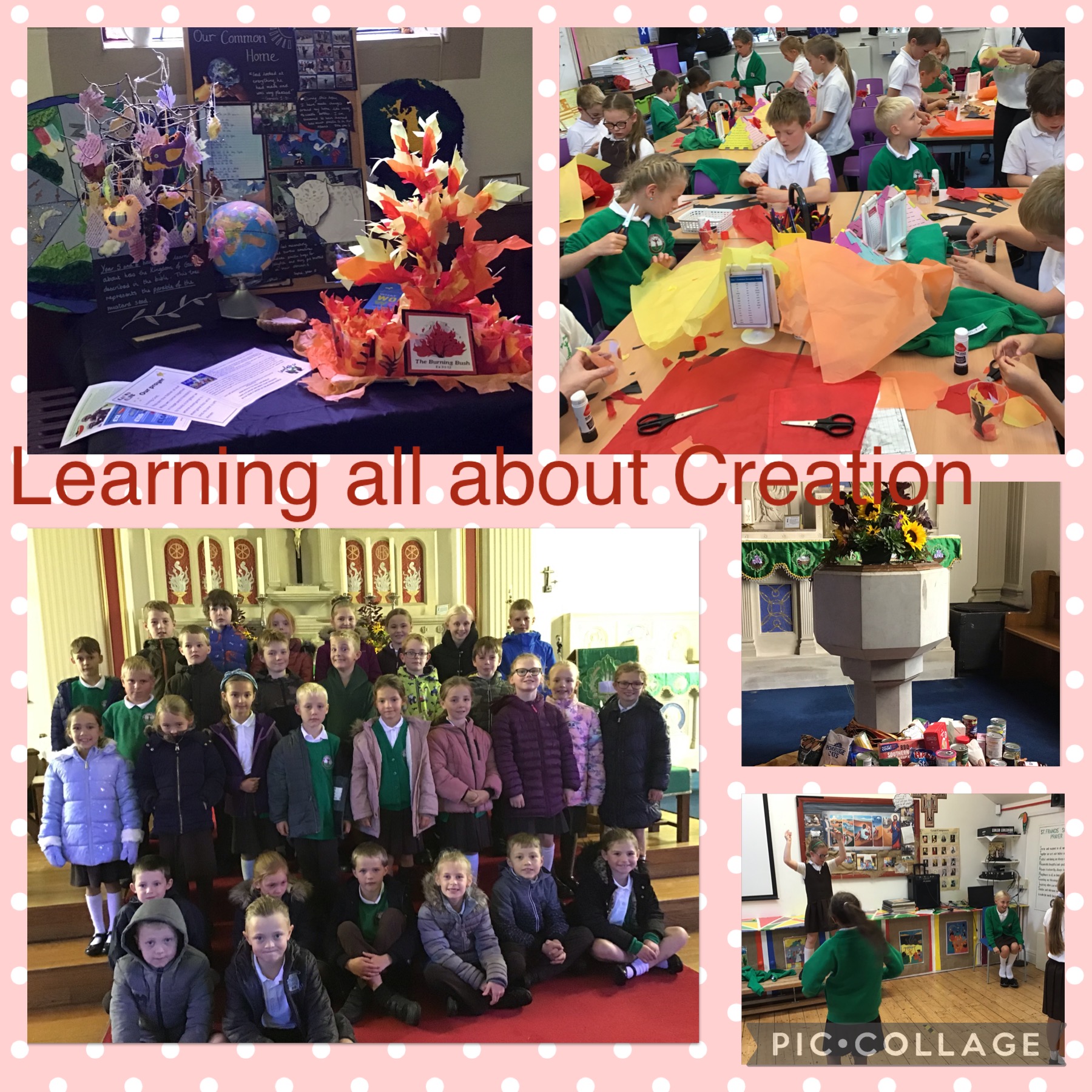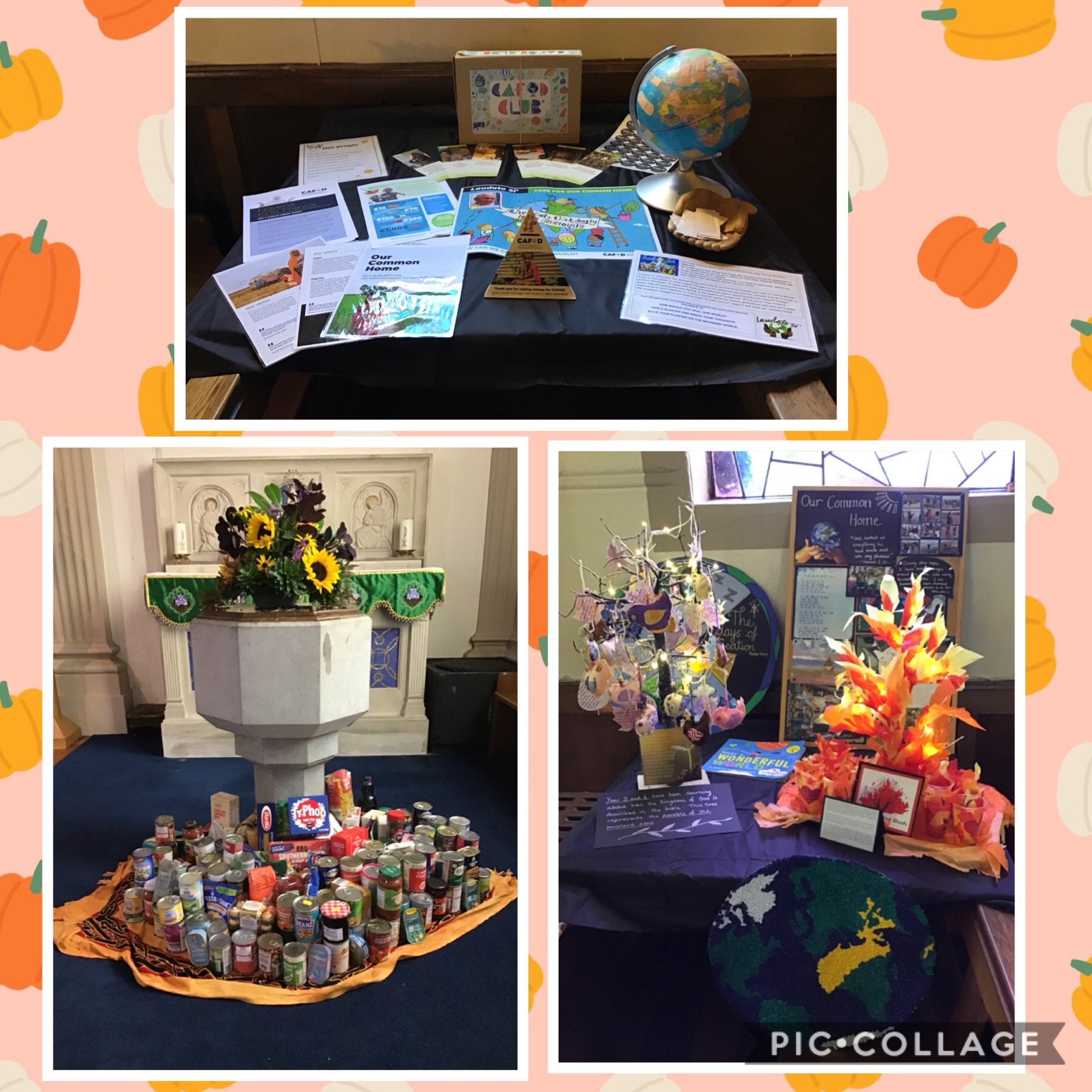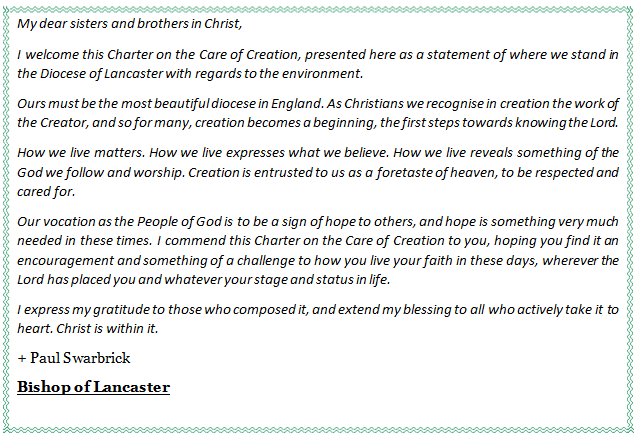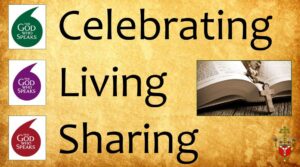Welcome to our resources page. Here, you will find assemblies and activity packs to share at home. Mission Together and CAFOD provide wonderful resources for reflection.
The assemblies contain scripture references and ideas for songs to sing and learn.
Religious Education at St.Francis
‘precious in His eyes’
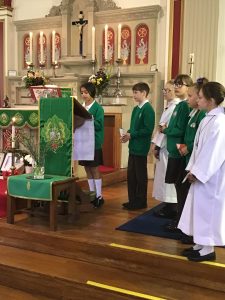
Through Religious Education, children study the Catholic tradition and come to an appropriate knowledge and understanding of the different religious dimensions of life. They are given the opportunity to examine their own religious attitudes and to respect the convictions of others. We teach respect for other religions, traditions and cultures and we enjoy learning about other religions and visiting places of worship. Our aim is for children to love God, themselves and each other, thus shaping their lives in the most positive, caring and fruitful way.
The curriculum planning wheels are used throughout the school and supported by materials from CAFOD, “The Way, The Truth and The Life” and “Caritas in Action” to ensure we meet the needs of our children. All classes follow the Religious Education Curriculum Directory. Time spent on this area of the curriculum varies from 2 to 2.5 hours per week. Children plan for and lead their own class prayer and liturgy and engage in a variety of fundraising initiatives through the year. We use Fratelli Tutti and Laudauto Si to examine our actions and care for our common home as co creators with God and stewards of creation.
Each child takes part in a daily act of worship (5-10 minutes) and formal prayers are used to open and close the school day sessions. Sacramental Preparation for Reconcilliation, Holy Communion and Confirmation is undertaken by the catechists of St.Francis’ Parish, Mrs Doran, Mrs Rossall and Miss Deakin.
Religious Education is further enhanced and given expression through the liturgical life of the church by attendance and active participation in the Mass and the sacraments through the observance of religious services and festivals. At the beginning of each new term the whole school attend Mass with the parish.
The Catholic faith perspective is not an added extra, which we teach and offer to the children, it is integrated into the whole life of the school and into all the aspects of the curriculum.
The Intent of our Religious Education Curriculum
We strive for the values in the Gospel, particularly in The Beatitudes (Matthew 5:3-12), where Jesus gives us the values to develop our human person and deepen our relationship with God. We live faith in all aspects of school life and we nurture childrens’ spiritual development through Christ’s teachings.
Our Religious Education curriculum aims to:
- Present comprehension content based on the knowledge and understanding of the Catholic faith;
- Enable children to deepen their religious and theological understanding and be able to communicate effectively;
- Develop an authentic vision of the church’s moral and social teaching;
- Raise children’s awareness of the faith and traditions of other religious communities to bring out respect and understanding;
- Develop children’s ability to relate their Catholic faith to daily life;
- Enable children to relate the knowledge they have gained from Religious Education to other subjects;
- Bring clarity to the relationship between faith and life, and between faith and culture.
The Implementation of our Religious Education Curriculum
At the centre of our whole school curriculum is Christ. He is present in all we do and He is our role model for our actions and words.
We use the Bishop’s Conference Directory topics: Revelation, The Church, Celebration and Life in Christ as a basis for all our planning, which are also outlined in the Diocesan RE wheels which every teacher incorporates in to their plans. The Directory provides ‘valuable guidance for the RE curriculum to ensure that our teaching and learning truly reflects the vision and breadth of the teaching of the Church’. This revised Directory was published so that religious educators can continue to meet the needs of the pupils of today.
Other world faiths and important Liturgical celebrations are interwoven throughout the year as children are encouraged to question and reflect on their own lives and the religious lives of others. We work with our small school cluster to arrange and attend visits and to unite in our faith and formation journey.
To ensure the children can be assessed accurately teachers ensure that the expectations of the Assessment Standards are integrated into the whole planning process. This will inform the teaching and ensure that expected standards are aspired to.
Have a look at the assessment standards to see the progression and stages of development:
NBRIA-Age-related-Standards-3-19-in-Religious-Education
The Impact of our Religious Education Curriculum
Religious Education as an integral part of learning and formation. An indicator of success will be the amount of pleasure and knowledge gained by the children from the study of RE and a deepening of their personal knowledge, understanding and response to Christ through their service of others. Our curriculum maps in all year groups begin with big thinking and ethical questions and the extraordinary ending aims to involve children in service and social justice actions and we use religious art in art lessons to further develop our love of RE and develop our relationship and love of God.
We have a high percentage of children undertaking sacramental preparation and children enjoy masses and praying together. Children are competent and confident when leading prayer and liturgy and they are keen to engage their families in prayer and community activities. The parish and school work closely together. Have a look at our celebrations and community events.
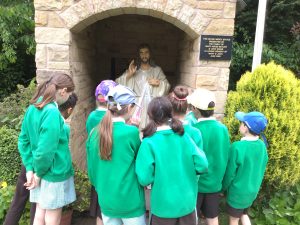
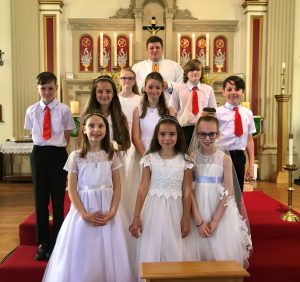
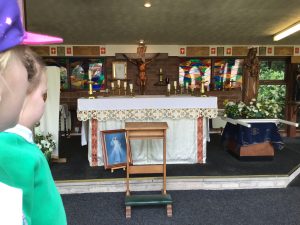
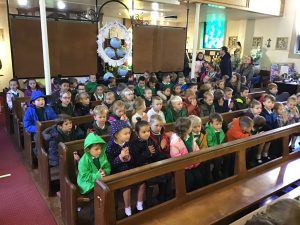
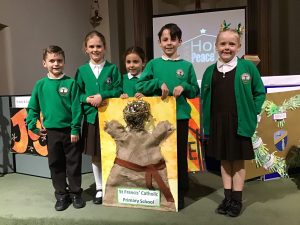
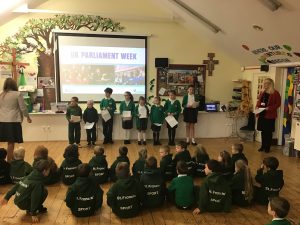
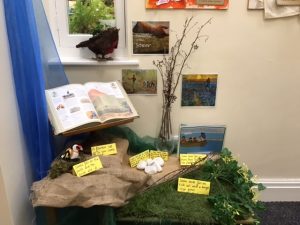
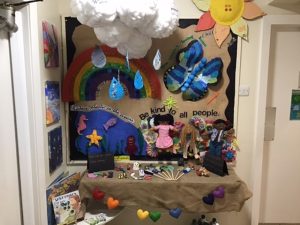
Season of Creation
As a school, we have enjoyed our season of creation and the children have contributed reflective thoughts, words and actions. Our season of creation finished with our St.Francis’ whole school Mass on the 4th October. The children sang the hymns so beautifully and we are very proud of how our youngest children joined in with prayers and responses. Thank you to all who came to our family welcome Mass last Sunday. It was lovely to see you there and it is always appreciated when you can come. Our next whole school Mass will be All Saints Day on Tuesday 1st November at 10.00am in church. Please do come along and join us for the first Mass of the half term-all families and friends are welcome.
2022: THE YEAR OF LUKE
 The Bishops’ Conference of England and Wales designated 2020 as a year in celebration of “The God who Speaks”, inviting the Church in England and Wales to listen afresh to the Word of God, as did Our Blessed Lady at the Annunciation, to encounter anew the presence of that Word, and to proclaim it afresh in the Church and the World. It was also the 10th anniversary of Verbum Domini – Pope Benedict XVI’s Apostolic Exhortation on ‘The Word of the Lord’, and the 1600th anniversary of the death of St Jerome who translated the Bible into Latin.
The Bishops’ Conference of England and Wales designated 2020 as a year in celebration of “The God who Speaks”, inviting the Church in England and Wales to listen afresh to the Word of God, as did Our Blessed Lady at the Annunciation, to encounter anew the presence of that Word, and to proclaim it afresh in the Church and the World. It was also the 10th anniversary of Verbum Domini – Pope Benedict XVI’s Apostolic Exhortation on ‘The Word of the Lord’, and the 1600th anniversary of the death of St Jerome who translated the Bible into Latin.
During that time – which ran from 1st December 2019 (the first Sunday of Advent) to 22nd November 2020 (the Feast of Christ the King), the emphasis was on the Gospel of Matthew which was the Sunday Gospel for Cycle A of the Church’s liturgical year. Subsequently the following year the intention was to focus on the Gospel of Mark which was the Gospel for Cycle B. The ‘Year of Luke’ began on the first Sunday of Advent 2021.
Luke is a master storyteller and his gospel alone begins with a personal dedication. His message is universal and moves from the poor of God in Judaea and Galilee to Jerusalem and then from Jerusalem to Rome, and then to the whole world. He uniquely records some of Jesus’ most famous stories such as the parable of the Good Samaritan; Jesus’ praise of the faith of the widow of Zarephath and Naaman the Syrian (Luke 4:25-27); and the story of the one grateful leper, a Samaritan (Luke 17:11-19).
Luke bridges the gulf between the old Israel and the newly emerging faith community. Luke’s Jesus insists on mercy for sinners and opens up new possibilities for all but especially the marginalised: Samaritans, women, lepers, tax collectors, prostitutes, children and widows. Only Luke celebrates this depth of divine forgiveness in the story of the Prodigal Son welcomed back by a forgiving father; and scandalously, for the righteous, the commendation of a forgiven woman sinner who disrupts a public feast to wash Jesus’ feet with her tears. Around Jesus no-one is outside the love of God …
There are six miracles and 18 parables which Luke has uniquely saved for us. They particularly reflect mental and physical healing, and hospitality and service; with Jesus stating: ‘I am among you as one who serves’ (Luke 22: 25-27) and inviting us to follow him. Luke celebrates Jesus’ opening up of shared table fellowship to the rich and poor, the saints and sinners, excluding no-one as a sign of the coming of God’s reign. It is Luke who has Jesus teach “Blessed are the poor” and choose to share his and his disciples’ life with the outcasts and the destitute… Fleur Dorrell.
The main focus for this Term is on the parables of Jesus in Luke’s Gospel. Four parables are explored in some detail with the hope that this will then give teachers the confidence to look at other parables during the course of the year. At the end of the booklet there is a ‘stand alone’ suggestion for schools about celebrating the Gospel of Luke during Holy Week though a single piece of artwork.
2020 :THE YEAR OF THE WORD: THE GOD WHO SPEAKS
The-God-Who-Speaks-Brochure-Final
Things to do at home
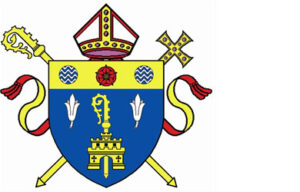
The Diocese have sent many things to schools to support home learning. As we fast approach Pentecost, why not learn through these websites and useful documents:
papa-francesco_20200425_lettera-mesedimaggio– Inspiration from Pope Francis
learning_at_home_living_the_spirit_of_pentecost__
The CAFOD website has wonderful resources for you to use at home and share as a family.
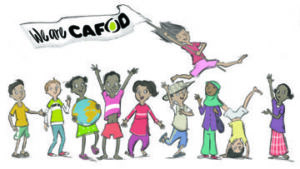
We were delighted to have gained the Live Simply Laudato Si Award. This reflects our constant dedication of being stewards of creation.
You can find weekly assemblies and there are games for children to play which support Caritas in Action and the Catholic Social Teaching Principles. Just visit www.cafod.org for these wonderful resources. I have put some on here for you to access directly.
CAFOD project ideas – Jar of Hope
CAFOD Annunciation colouring pack
CAFOD St Oscar Romero family activity pack
CAFOD Laudato Si’ project pack – week one
CAFOD Home Learning Resource pack 11 May
CAFOD resource pack – Pentecost
CAFOD Resource pack – refugees
CAFOD resource pack – bread of life
Mission Together Resources
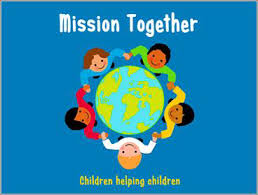
The-children-who-prayed-for-peace-Five-Facts-Assembly-1-1
St-Peter-and-the-Universal-Church-Assembly-notes
Have a look on the Mission Together website for monthly prayers, Feast days information and powerpoints, world celebrations and much more.
Please find links below to the important RE documents
